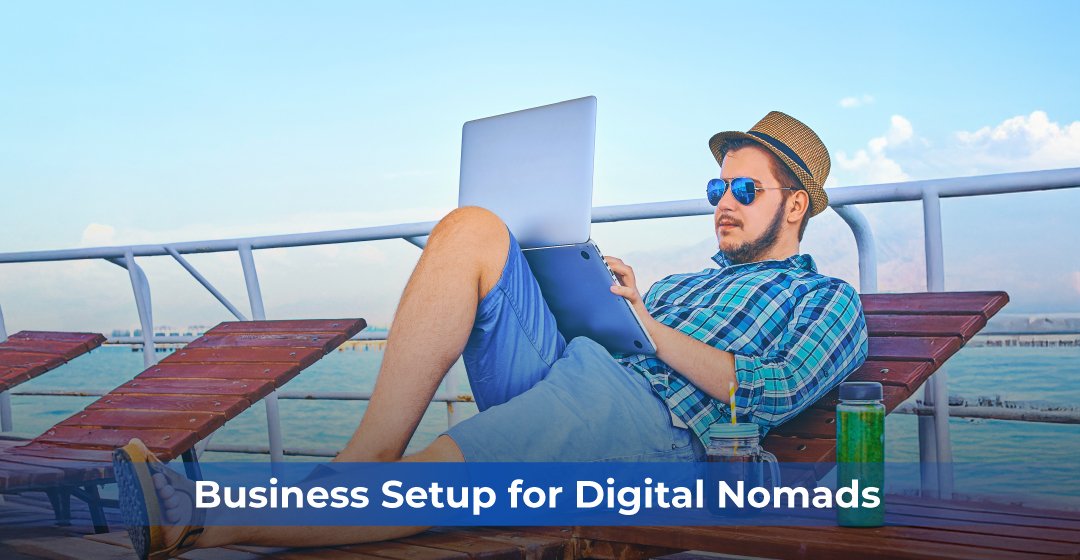In recent years, Dubai has earned a reputation as an attractive destination for remote work. The UAE’s Virtual Working Programme, also referred to as the Digital Nomad Visa, permits employees of overseas companies and freelancers to reside in the UAE while retaining their international clientele. The city thus offers a perfect blend of opportunity and high standards of living for those seeking to benefit from flexibility, security, and access to one of the world’s most versatile economies.
Understanding The Virtual Working Programme
The Virtual Working Programme was launched by the Dubai Department of Economy and Tourism (DET) and the General Directorate of Residency and Foreigners Affairs -Dubai (GDRFA). Under the ambit of the Virtual Working Programme, individuals who meet the eligibility criteria can apply for a one-year residency permit that grants them permission to stay in the UAE and access most essential services provided to other residents, including banking, schooling, and telecommunications. What makes the Virtual Working Programme attractive is the absence of both personal income tax and corporate tax, since the individual’s income is earned from outside the UAE.
The criteria for eligibility are as follows:
1. A passport with at least a six-month validity period.
2. Proof of employment with a foreign company with a valid contract for at least one year.
3. Earn a minimum salary of USD 3,500 per month (or the equivalent amount in another currency).
4. Proof of health insurance that covers the duration of stay in the UAE.
While the above is the eligibility criteria for employees of foreign companies, business owners can also secure a residence permit under the Virtual Working Programme by sharing proof of company ownership for a company registered outside the UAE. They will also need to show a minimum of USD 3,500 per month as income from business profits, along with company bank statements for the last three months.
The entire process can be completed online through official government channels like the GDRFA, and once the application is approved, the individual can reside in the UAE for a year and continue to work for an employer abroad. This initiative further accelerates Dubai’s digital economy strategy and encourages global talent to explore the city’s infrastructure and opportunities while retaining their international work.
Virtual Working Programme Residence Permit and a Freelance Visa: What’s the Difference?
Though often used interchangeably, both the Virtual Working Programme residence permit and a Freelance Visa serve distinct purposes under the UAE law:
| Feature | Virtual Working Programme | Freelance Visa |
|---|---|---|
| Purpose | Permits foreign employees to live in Dubai while working remotely for a non-UAE organization | Allows self-employed individuals to legally provide their services to local and international clients |
| Legal Framework | No requirement for a trade license or company registration | Typically requires a Dubai Free Zone license, and can also secure a license from Abu Dhabi, Ras Al Khaimah, and Fujairah |
| Client Base | Cannot legally provide paid services to a UAE-based clientele | Can serve both UAE-based and foreign clients |
| Income Source | Needs to originate outside of the UAE | Income can originate from both within the UAE and internationally. |
| Basis of Residency | Based on proof of income and an employment contract | Based on the free zone business license |
To sum it up, the Virtual Working Programme is more suited for employees whose income originates outside of the UAE. It offers residents benefits without the requirement of a Dubai trade license.
In comparison, the Freelance Visa is designed for professionals who wish to operate independently and tap into local and international business opportunities under a registered Dubai Free Zone entity or other UAE-based free zone entities.
Key Considerations for the Dubai Virtual Working Programme
Purpose and Scope: Under this initiative, residents can live and work in the UAE while continuing to work for clients or an employer abroad. It does not permit participation in the local market or working for UAE-based companies.
Application Process: Applications are accepted online through the GDRFA. Steps include paying application fees, uploading relevant documents, and awaiting approval from the GDRFA.
Residency Benefits: Visa holders can enjoy the same privileges as other UAE residents, like accessing utilities, opening bank accounts, leasing property, and enrolling children in educational institutions.
Insurance and Compliance: Residents operating under this visa need to ensure that they have insurance coverage for the duration of their stay in the UAE. They also need to ensure that their income source remains outside the country.
Renewal Process: To renew your visa, you must continue meeting all financial and employment-related obligations. All renewal requests must be submitted before visa expiry through the same government portal.
Switching From a Digital Nomad to a Licensed Freelancer
The Virtual Working Programme residence permit allows remote professionals to enjoy the benefits of living in the UAE without the need to set up a local company. However, if you wish to expand into local markets, hire additional staff, and diversify income streams, then obtaining a Dubai business license through a free zone would become the logical next move. This will involve cancellation of the Virtual Working Programme residence permit and applying for a Freelance Visa to secure a free zone license for commercial expansion.
Whether you intend to begin as a digital nomad or are ready to take the next step and become a licensed freelancer, InZone ensures that you meet all legal compliance requirements for setting up a business in Dubai while simultaneously maintaining operational efficiency.










 Founder's Podcast
Founder's Podcast 


